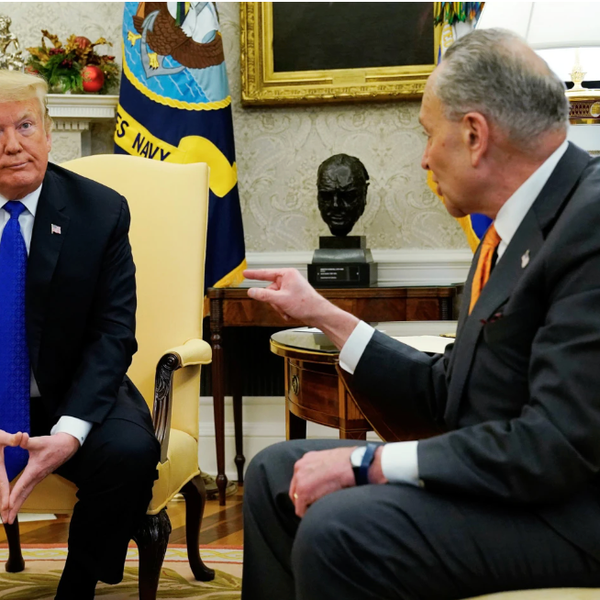
By William E. Gibson and Erika Pesantes, Sun Sentinel (TNS)
WASHINGTON — Now comes the backlash to President Barack Obama’s outreach to Cuba.
Florida Republicans are leading the charge against Obama’s new policy to end the isolation of Cuba, setting up a clash in Congress next year and a point of debate along the presidential campaign trail.
The controversy gives U.S. Sen. Marco Rubio a crusade to lead in the Senate and gives former Gov. Jeb Bush a cause to promote if he decides to run for president. The issue raises their profile on the national stage and sets up a clear contrast with Obama and Hillary Rodham Clinton, the presumptive Democratic front-runner for president.
Republicans are looking for ways to block Obama from carrying out his plan to normalize relations with the Cuban government, set up an embassy in Havana, expand American travel to the island and create phone and Internet links.
“We’ll do everything we can to address that in the days and weeks to come,” Rubio (R-FL) said Thursday.
He stood alongside outraged and heartbroken relatives of the men who were shot down while flying Brothers to the Rescue planes off Cuba’s coast in 1996. The relatives clutched a poster of the men killed — Carlos A. Costa, Pablo Morales, Mario M. de la Pena and Armando Alejandre Jr. — calling them martyrs and showing their photographs. “Justice Delayed Is Justice Denied,” it read.
“We were so heartbroken yesterday when we heard the news,” said Miriam de la Pena, mother of one of the men. “As a matter of fact, we were shocked. I didn’t want to speak to anyone for many hours just trying to absorb what had just happened. Once again, Feb. 24, 1996, was felt in our community.”
Rubio has indicated he will try to deny funding for a U.S. embassy in Havana and to block confirmation of any proposed ambassador to Cuba.
Incoming Senate Majority Leader Mitch McConnell said this week he would defer to Rubio on Cuba matters. Other Republicans were quick to join the fight.
“I will do all in my power to block the use of funds to open an embassy in Cuba. Normalizing relations with Cuba is a bad idea at a bad time,” Sen. Lindsey Graham (R-SC) said in a tweet.
Florida’s Cuban-Americans in Congress are at the forefront of the backlash, just as they have long influenced U.S. policy on Cuba.
U.S. Rep. Mario Diaz-Balart, a Republican, expressed a quiet outrage over the prospect of diplomatic relations with Cuba before making gains in “basic steps toward freedom,” including the liberation of all political prisoners and freedom of the press, political parties and labor unions.
His GOP colleague Ileana Ros-Lehtinen (R-Miami) added: “The Cuban people are no more free today than they were before Obama’s terrible deal.”
Rubio has been down this road. Two years ago, he put a hold on a State Department nominee, stalling her confirmation, until the Obama administration agreed to tighten restrictions on travel to Cuba. The result forced tour groups to set a rigorous agenda of “purposeful travel” — no lolling at the beach or hanging out at nightclubs. Tour leaders must navigate a lengthy process to acquire licenses to travel — limits that Obama now plans to ease.
Republicans also are challenging Obama’s right to impose a sweeping change, saying it violates a law that prevents lifting the embargo until Cuba accepts political reforms and releases political prisoners.
Bush, meanwhile, staked out his hard-line position on Cuba earlier this month, saying the embargo should be strengthened, not eased or lifted. To the applause of a U.S. Cuba Democracy PAC gathering in Coral Gables, Fla., Bush said the embargo should be lifted only “when there is progress on basic human rights for the Cuban people, including the release of political prisoners, fair and free elections, respect for the rule of law, the cessation of destabilizing countries in the region and the embrace of a free-market economy.”
Bush’s position contrasts with Clinton’s call for an end to the embargo, which she said has clearly failed to bring democracy to Cuba and has created hardship for the Cuban people.
Both sides are drawing battle lines in Congress and in the 2016 presidential race on an issue that divides Florida, the biggest swing state and home to the largest Cuban-American population. Cuba policy has roused less interest in other states, but Obama’s bold action has drawn nationwide attention.
Democrats are counting on indications that Florida voters, including Cuban-Americans, are becoming more supportive of closer ties to Cuba.
A survey of Cuban-Americans in the Miami area by Florida International University, released in June, found that 68 percent favored re-establishing diplomatic relations with Cuba, while 69 percent supported lifting travel restrictions.
“In South Florida, it’s always been a salient issue. There, I think, a moderate policy on Cuba is politically very sustainable,” said William LeoGrande, a Cuba expert at American University in Washington. “For a very large proportion of the Cuban-American community, they want to be able to go back and visit family.”
___
(Gibson reported from Washington and Pesantes from Miami.)
AFP Photo/Mandel Ngan








